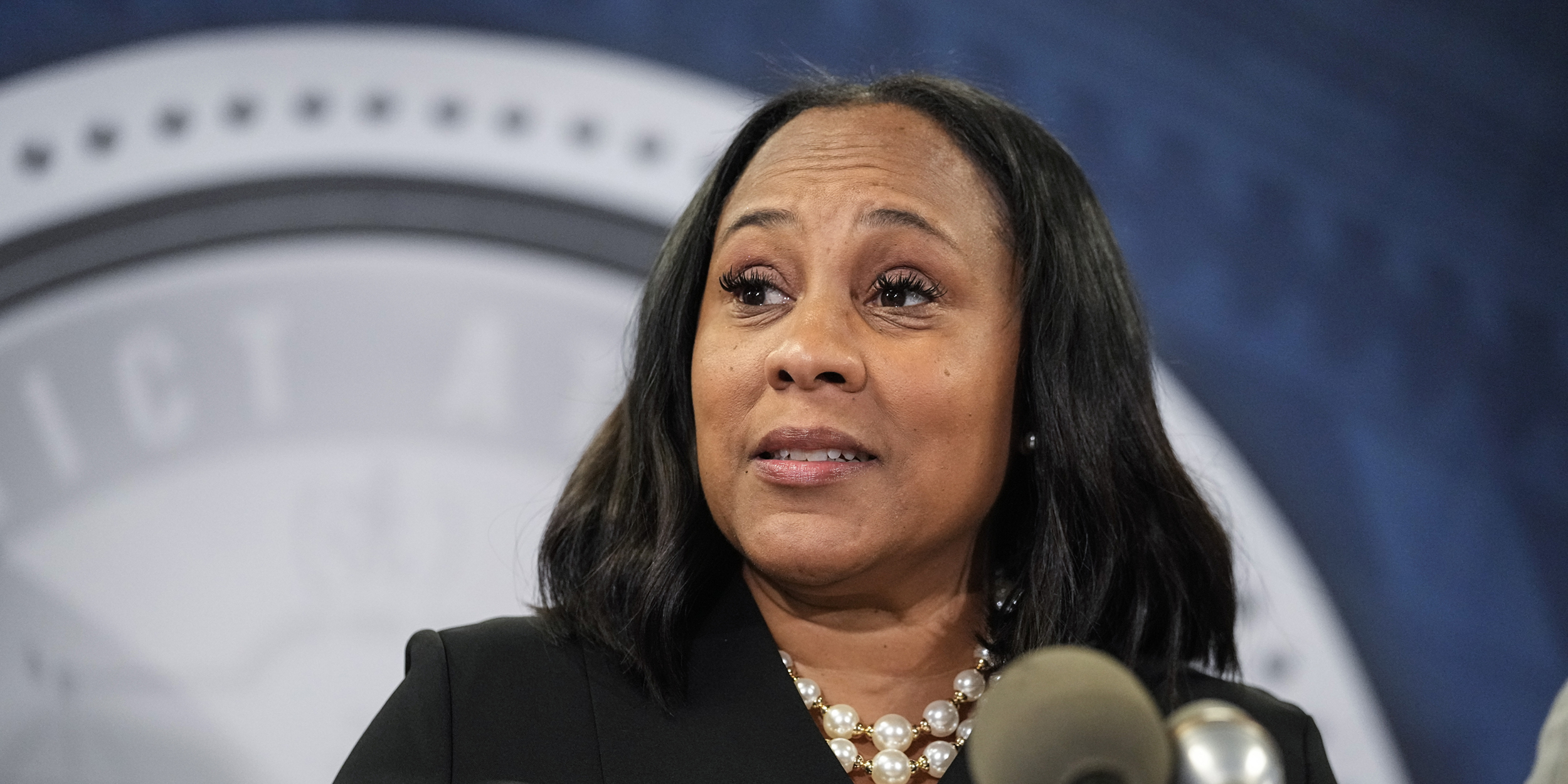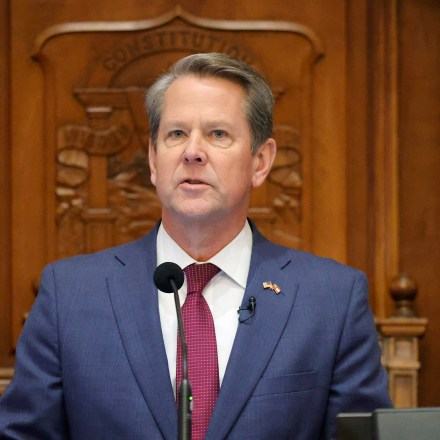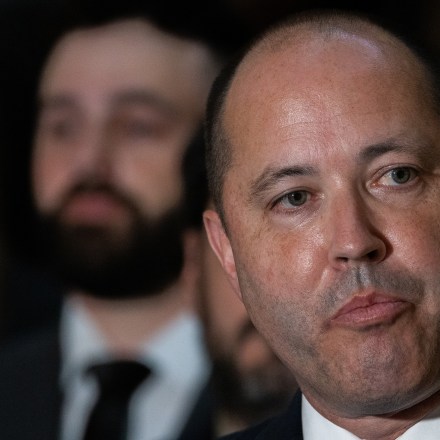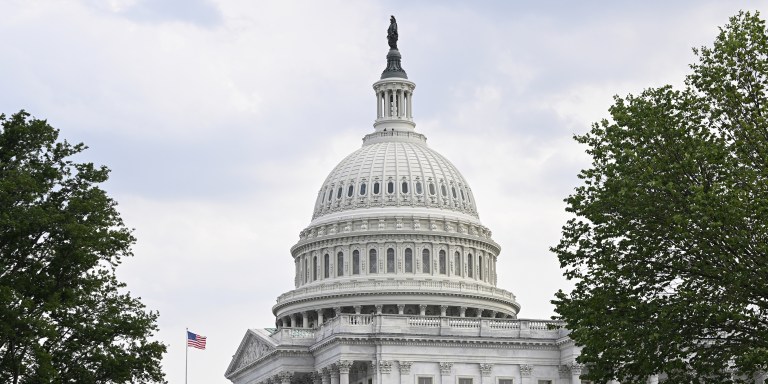A little over a week after a prosecutor in Georgia indicted former President Donald Trump for trying to overturn the results of the state’s 2020 presidential election, Republicans said they will use a new law to remove her from office.
In May, Republican Gov. Brian Kemp signed the law that created a new commission of political appointees with the power to remove and discipline elected prosecutors over decisions or policies not to prosecute certain offenses. The law seeks to limit or restrict reform-minded prosecutors. In the case of Fulton County — which includes Atlanta — though, District Attorney Fani Willis is not even known as much of a reformer. Instead, Republican lawmakers set their sights on Willis for another reason: prosecuting the wrong person.
In a Facebook post Monday, state Sen. Clint Dixon, a Republican, said Willis was indicting Trump because of an “unabashed goal to become some sort of leftist celebrity” and should be investigated for using the justice system against her political opponents.
The Public Rights Project, a nonprofit that worked on a lawsuit by a bipartisan group of Georgia prosecutors against the bill earlier this month, filed a preliminary injunction against the commission on Thursday seeking to stop it from initiating any disciplinary or removal proceedings against a prosecutor while litigation over the law is pending.
“The original reasoning for the commission was to go after DAs who supposedly weren’t prosecuting enough,” said Jill Habig, executive director of the Public Rights Project. “It’s not only about not prosecuting enough, it’s also about prosecuting too much if the defendant is the wrong one from the perspective of the partisan officials who are creating and staffing this commission.”
Habig, who said her group disagrees with that characterization of prosecutors targeted by the bill, said the injunction to block Willis’s ouster was necessary to preserve the will of voters who elected prosecutors across the state. (The commission did not immediately respond to a request for comment.)
The new Georgia law is one of close to 40 similar measures introduced in a third of states since 2017 that target prosecutors implementing popular criminal justice reforms. The recent efforts to subvert the authority of elected prosecutors have been largely driven by white Republican lawmakers in gerrymandered states against Black Democrats in the liberal islands of cities, Habig said.
“This is part of a national trend that we’re seeing of predominantly white, often gerrymandered state legislatures targeting prosecutors — often Black prosecutors.”
“Over a third of states have considered legislation to retaliate against local prosecutors for pursuing policies that they disagree with,” Habig said. “This is part of a national trend that we’re seeing of predominantly white, often gerrymandered state legislatures targeting prosecutors — often Black prosecutors, and often prosecutors elected in cities and counties with larger Black and brown populations. So the partisan and racial nature of this retaliation I think is something that’s really important to highlight.”
The remarks by Dixon, the state senator, were the first shot across the bow, Habig said: “The drumbeat is just starting.”
Another Republican state lawmaker called last week for a special legislative session to investigate Willis, and others are drafting a statement to condemn her for indicting Trump, the Atlanta Journal Constitution reported. (Dixon and Kemp did not respond to a request for comment.)
Beyond the focus on Willis for indicting Trump, Habig said, the law is already having a pernicious effect on prosecutors across the state. “There have already been changes in how DAs talk about their priorities and the kinds of cases that they think are most important, changes in the traction to build criminal justice reform efforts in the state,” she said.
Georgia attorneys said they were afraid to discuss basic parts of their work for fear of being targeted for removal under the law. “I have concern that some of my policies and approaches could be interpreted as a ‘stated policy’ that could give rise to a complaint, investigation, and discipline,” DeKalb County District Attorney Sherry Boston wrote in an affidavit supporting the motion for a preliminary injunction. Boston said her commitment to reforms like higher evidentiary standards and pretrial diversion guidelines could all put a target on her back.
In another affidavit, the director of public policy and communications at the Savannah nonprofit Deep Center said the organization had been working with a local prosecutor to implement reforms, but, after the passage of the law, the prosecutor balked.
Deep Center’s Coco Guthrie-Papy said her organization had worked with Chatham County District Attorney Shalena Cook Jones to develop plans to address the backlog of people awaiting trial and sentencing in the county jail, start a pre-arrest diversion program, and alleviate certain court fines and fees. Jones’s office embraced those efforts at first but soon became more reluctant, Guthrie-Papy said.
Guthrie-Papy said her organization started to see changes as the bill started moving through the legislature. “It’s one of those things that’s never spoken out loud, but you can see people’s behavior start to change because people get scared. And fear is an incredibly powerful emotion,” she said. “It was very clear to us that all of this work that we had sort of been trying to push through the DA’s office was going to come to a halt.” (Jones did not immediately respond to a request for comment.)
Before the push for the new law, some prosecutors in Georgia, in response to calls from local communities, began to narrow their focus to the most dire crimes, Guthrie-Papy said. She pointed to the killing of Ahmaud Arbery in 2020 as a catalyst for the election of more reform-minded DAs, but the new law put those prosecutors in a bind.
“At the end of the day,” she said, “what it has really done is disrupted the legacy of bipartisan reform that has happened in Georgia, which has been really, really hard to get to.”










